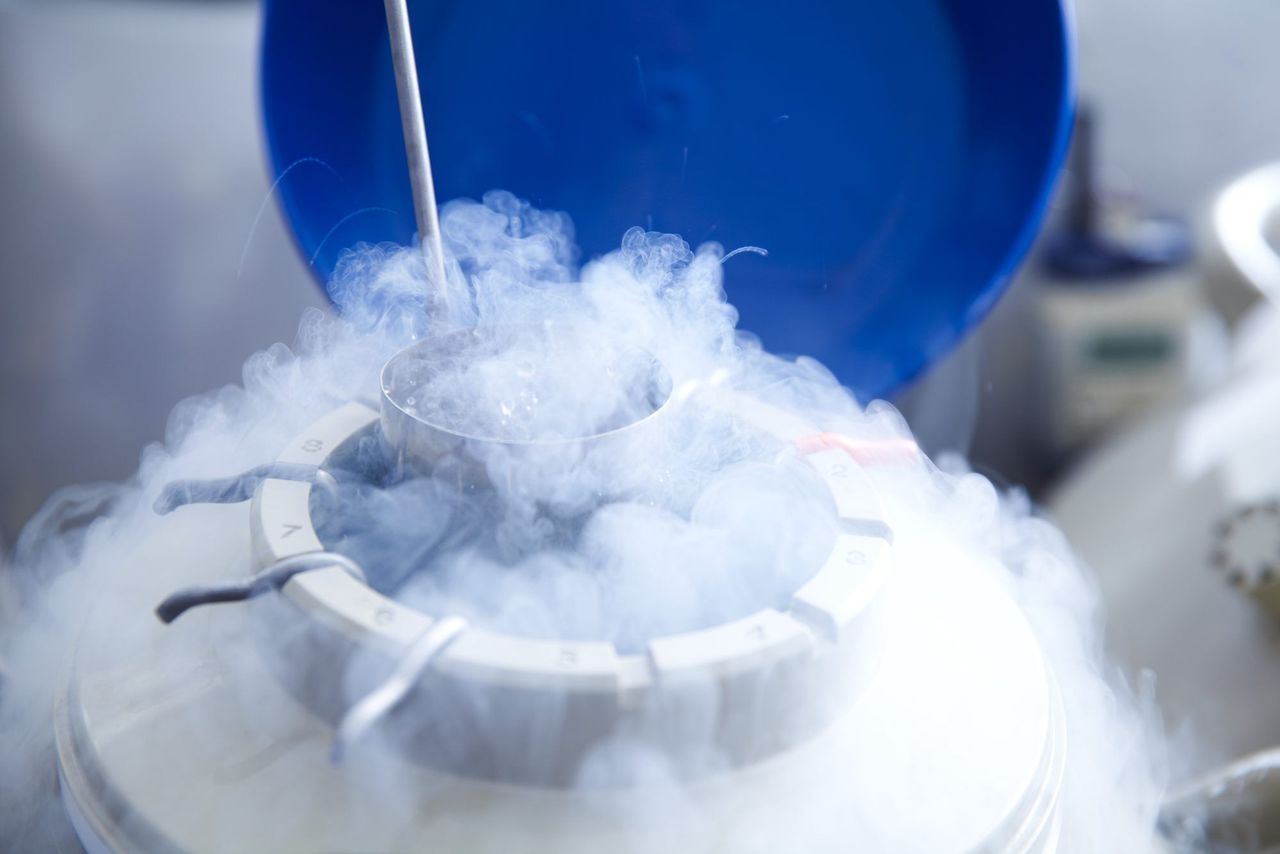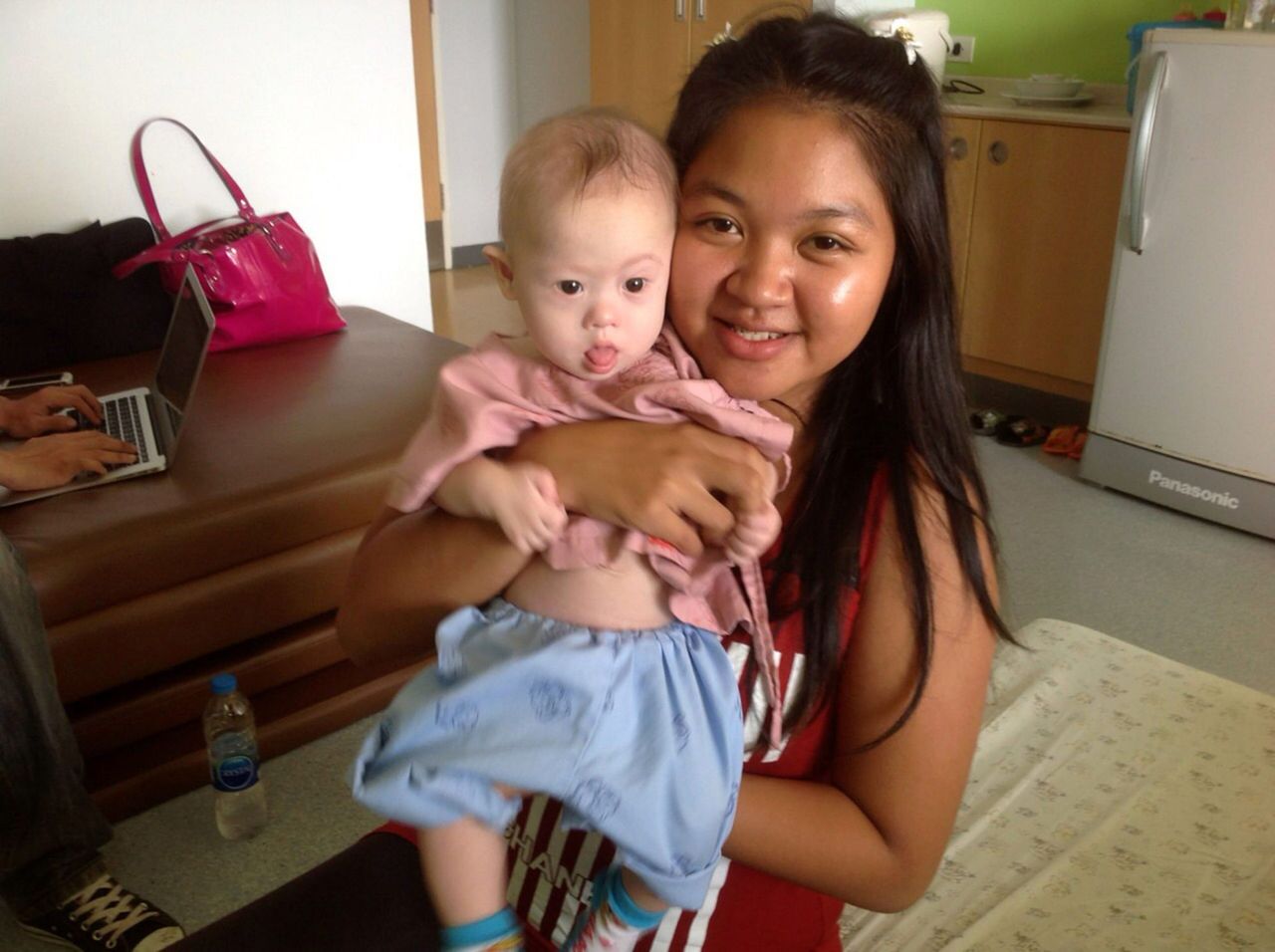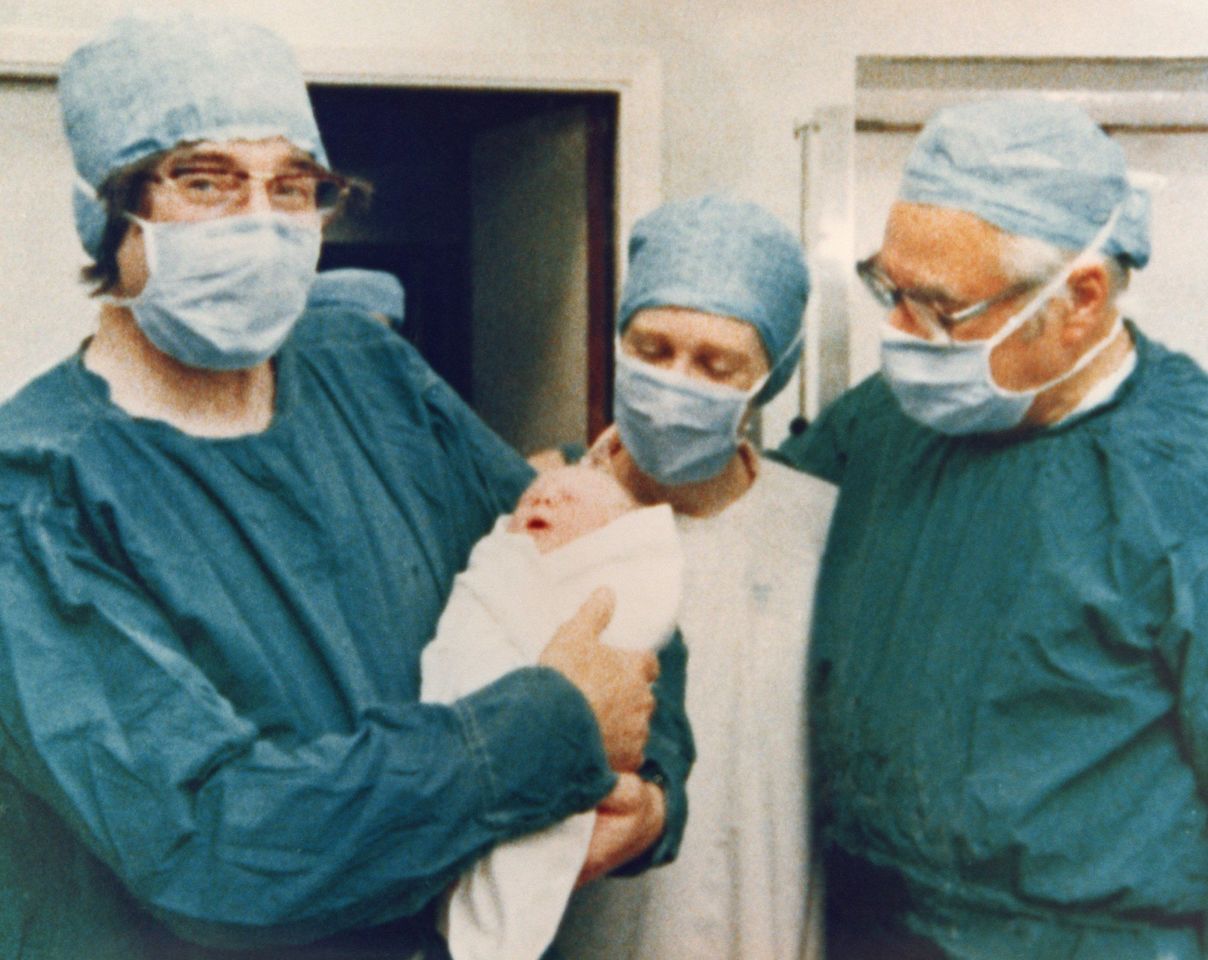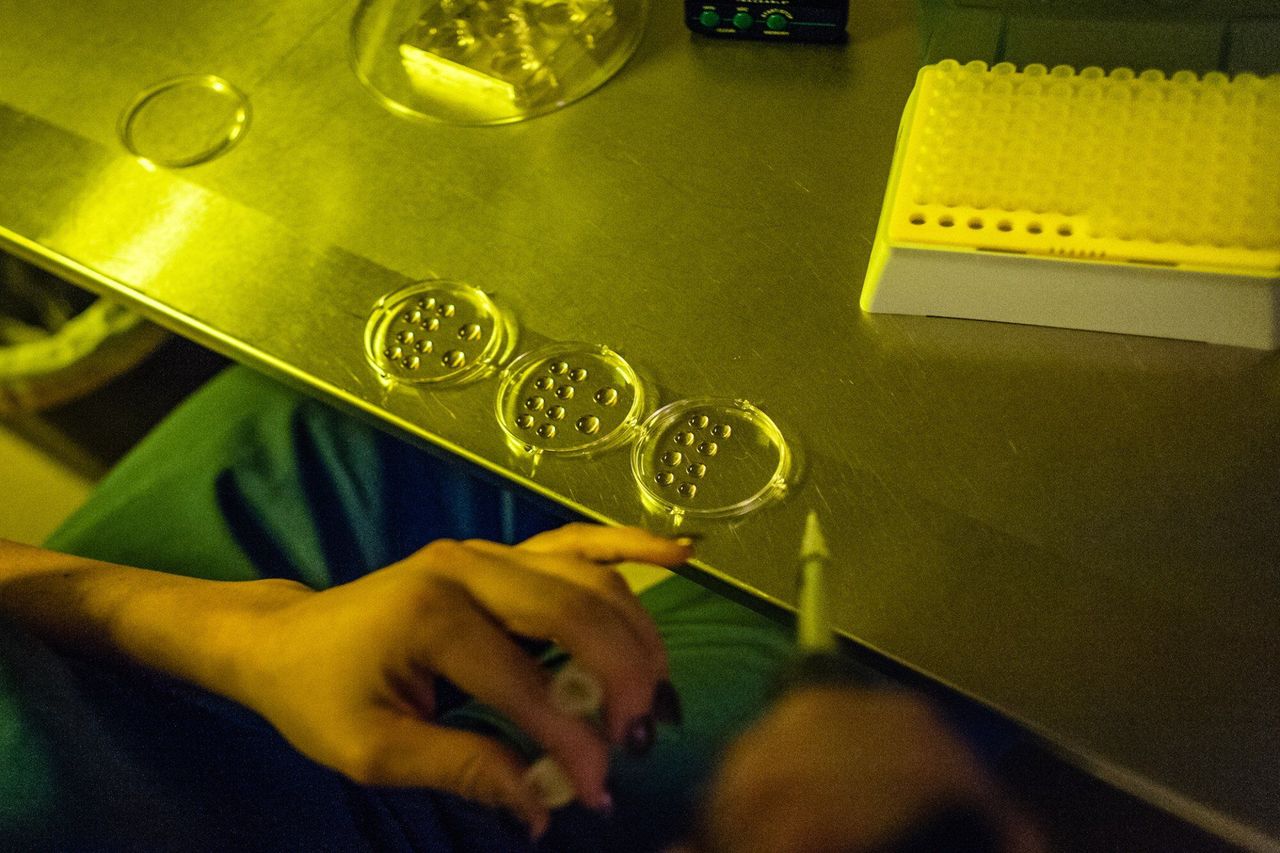
Why many women are being denied a chance at motherhood in Hong Kong
Ella had always planned to start a family. But after nearly a decade of regular Thursday-night dates in Hong Kong, the 35-year-old was exhausted. As 2013 dragged on, she accepted that the right man might not arrive in the coming year, which was how long doctors had predicted her fertility would last. So she decided to freeze her eggs, with the intention of using a sperm donor to fertilise them when the time was right. She was excited, she recalls – “I felt like I was securing my future.”
She was not worried about becoming a mother on her own. Her parents had divorced when she was one year old, and a single-parent household was all she had ever known. But while in her native Denmark, 8 to 10 per cent of children are conceived through in vitro fertilisation (IVF), in her adopted home of Hong Kong, the Human Reproductive Technology Ordinance of 1997 bans women from fertilising their eggs without a husband’s signature, forcing unmarried women to travel abroad for the procedure.
Winnie Chow, a family lawyer at Chow Ruskin Brown, says that ordinance is based on English legislation from the 1980s and 90s, when “societal norms and views, as well as, more importantly, medical technology were very different”.
“The definition of a valid marriage in Hong Kong is currently based on the Christian faith […] a voluntary union of a man and a woman for life to the exclusion of all others,” she says. “Historically, the majority of marriages in Hong Kong were actually those that may have included concubines. They did not adhere to the monogamous heterosexual relationship that’s confined to just one man and one woman.”
 Hong Kong’s public-health sector will cover egg freezing for single and
lesbian women only if the individual is undergoing treatment for cancer.
Hong Kong’s public-health sector will cover egg freezing for single and
lesbian women only if the individual is undergoing treatment for cancer.
The fact she did not have the right to reproduce on her own terms came as a rude awakening, but once reality set in, the best option for Ella seemed to be Thailand: the country had a good reputation for fertility clinics, far lower costs than in the West, and just three hours from Hong Kong, it offered a safe flying time for a body full of hormones that increase the risk of blood clots. Most importantly, Thailand was open to single and lesbian women wanting to freeze and later inseminate their eggs, at a cost of roughly US$6,000.
Hong Kong’s public-health sector will cover egg freezing for single and lesbian women only if the individual is undergoing treatment for cancer. Public hospitals do subsidise IVF for infertile couples, charging from HK$10,000 to HK$24,500 (US$1,300 to US$3,510), but for those that can afford it and want to cut waiting times, private care costs between HK$80,000 and HK$150,000 per cycle.
It is a criminal offence for non-married individuals to travel overseas for fertility treatments such as IVF or surrogacy. Under the Human Reproductive Technology Ordinance, both men and women face fines of up to HK$25,000 and six months in prison, rising to HK$50,000 and two years imprisonment for a second offence.
After a fortnight of hormone injections and a procedure for which she was placed under general anaesthesia in Bangkok, Ella’s eggs were extracted, frozen and stored to await her use.
Or so she thought. Three years later, Ella decided she was ready to have a baby. She called the clinic to make the arrangements, but there was a problem. In July 2014, not long after Ella had frozen her eggs, a Thai woman named Pattaramon Chanbua made headlines after she was paid 350,000 baht (US$11,000) to be a surrogate mother for an Australian couple. When an ultrasound revealed that one of the twins she was carrying had Down’s syndrome, the parents asked Pattaramon, a 21-year-old food vendor, to abort. She refused, citing her Buddhist beliefs, and after handing over the other baby after birth, planned to raise the boy herself.
Soon afterwards, baby Gammy developed a life-threatening lung infection and needed operations for a heart condition, which Chanbua could not afford. In the hope of raising money for treatment, she told journalists of her predicament. A viral online campaign soon raised more than US$200,000, but also dredged up the sordid past of the father, David Farnell, who had been convicted of child sex offences in the 1990s.
 Thai surrogate mother Pattaramon Chanbua with her baby Gammy at the
Samitivej Hospital on August 6, 2014 in Chonburi province in Bangkok,
Thailand.
Thai surrogate mother Pattaramon Chanbua with her baby Gammy at the
Samitivej Hospital on August 6, 2014 in Chonburi province in Bangkok,
Thailand.
The ensuing controversy led to Thai authorities drafting the Assisted Reproductive Technologies Act, banning foreign residents from any commercial surrogacy contract arrangements, and withdrawing IVF access for same-sex couples, single parents and unmarried individuals. It also became illegal to transport ova and sperm in and out of the country, which meant Ella’s eggs were effectively now held hostage in a cold-storage facility in Thailand.
“It was like [my future] had been ripped away from me,” says Ella. “It just felt so wrong.”
Since the first “test tube” baby was born in 1978, thanks to Cambridge University physiologist Robert Edwards and obstetrician Patrick Steptoe, methods of assisted reproduction have led to more than 6 million live births. In many countries, between 3 and 6 per cent of children are now conceived through IVF. In Hong Kong, 7,995 women underwent IVF cycles in 2018, resulting in a pregnancy rate of 33.7 per cent per transfer of embryos. This percentage drops after the age of 40, and Ella had started to feel time was running out.
On a beach in Lamma, near where she had relocated from crowded Mid-Levels to a greener, more affordable neighbourhood conducive to raising a child, Ella met Tom, who was gay and knew he might never have children of his own. Eventually agreeing to the idea of Tom being a sperm donor, and with the rise of biotechnology websites such as 23andMe, as well as legal changes across Europe giving 18-year-olds access to donors, Ella warmed to the idea of co-parenting.
The pair travelled to Mumbai, India, where IVF treatment is cheap and has few restrictions. But Ella was now 38, and the egg retrieval process in India was not of the same quality she had experienced in Thailand. Ella went through two embryo transfers, but each had the same negative result: “You wait two weeks, get your period, and get sad,” she says.
 25th July 1978: The team who pioneered in vitro fertilisation with the
world’s first test tube baby, Louise Joy Brown, at Oldham General
Hospital in Lancashire, England, on July 25, 1978.
25th July 1978: The team who pioneered in vitro fertilisation with the
world’s first test tube baby, Louise Joy Brown, at Oldham General
Hospital in Lancashire, England, on July 25, 1978.
Amy, a 40-year-old drama teacher at an international school in Hong Kong, banked on her chances of having a baby increasing with each IVF cycle. One study, published by the Journal of the American Medical Association, showed that by round six, more than 65 per cent of women had achieved a live birth, those under 40 having most success.
“It becomes a kind of fixation,” says Amy, who had three rounds of IVF in Thailand after four failed rounds of intrauterine insemination (IUI) – in which washed and concentrated sperm are placed in a woman’s uterus near the time her ovary releases one or more eggs. “You put such a lot into each one of those trips,” she says, adding that they are time-consuming and inflexible, to say nothing of financially and emotionally draining.
Even without the flying between countries for doctor’s appointments, IVF is an intense physical and emotional undertaking. At home there is ovulation tracking and self-injected medication to suppress the natural menstrual cycle for two weeks, followed by a follicle-stimulating hormone shot taken one to four times a day for more than a week.
Then at the clinic, a needle is inserted through the vagina to extract eggs from the ovaries, which are either frozen and thawed before being fertilised in a lab, or inseminated with sperm directly to create an embryo. That is then transferred using a catheter through the cervix. More progesterone shots follow after leaving the clinic, and then a torturous two weeks of waiting for confirmation of that slim, sometimes single-digit chance of success.
After spending upwards of HK$300,000, IVF didn’t work for Amy, either. Two years after her first attempt, she travelled to St Petersburg, in Russia, where on her third trip, she conceived through egg donation at age 42. “Egg donation is obviously much more hardcore [than IVF],” says Amy, “because you’re preparing to receive something that’s not really yours.”
In the lead-up to the embryo transfer, Amy had to take progesterone vaginal pessaries – a steroid that prepares the uterine lining in synchronisation with the treatment cycle so the uterus is ready for implantation – which she transported back to Hong Kong, knowing that thousands of Hong Kong dollars would go to waste should she miscarry. In the end, the pregnancy ran its course and her son is now 11, but she says, “you wouldn’t have to do that if it was legal in Hong Kong”.
 Actress and singer Charlene Choi is one of a number of celebrities in Asia who chose to freeze her eggs.
Actress and singer Charlene Choi is one of a number of celebrities in Asia who chose to freeze her eggs.
Becoming pregnant was a smoother process for Joscelyn Webb, a teacher at an international school in Hong Kong. After a smattering of romantic relationships in Hong Kong with both men and women, the 36-year-old realised a pregnancy was not going to happen in the conventional way. “We’re the generation that grew up on romcoms and we’re waiting for Mr Perfect and all these grand gestures, following on from the 80s power woman who can do it all. Suddenly we’re self-sufficient, we want a lot from a partner. It’s delay, delay, delay, and then you’re like, ‘Oh hold on a second, I’ve left all this a bit long.’”
In 2018, she went to Britain for an IUI. “I wasn’t ovulating every month, just a couple of times a year,” she says. “I was told that ‘the average woman has about a 5 per cent chance with an IUI, yours is probably about half that’. Then there’s an about 50 per cent chance of miscarriage because of your age and other health issues.”
It felt like a miracle when she fell pregnant with her son on the first attempt.
“I was always the kid carrying my doll everywhere,” Webb recalls. “I would fantasise about my future family to the point my parents would say, ‘Stop wasting life waiting for it to start.’” Until she could have her own children, she says, “I didn’t quite feel complete.”
 An embryologist prepares some eggs for thawing at Shady Grove Fertility in Rockville, USA.
An embryologist prepares some eggs for thawing at Shady Grove Fertility in Rockville, USA.
Her doctor in Hong Kong, who had come highly recommended by married friends, took it upon himself to say that her choice was “selfish and morally wrong”. He would support and treat her medically, he said, but did not agree with her becoming a single mother.
“Growing up,” she says, “I probably had a similar attitude to most people about what a single mum was: young, probably got herself into a bit of a situation, or the dad’s done a runner, she probably isn’t working and is probably using the benefits system to survive, she potentially isn’t well educated. It’s awful but I had that mindset growing up.” Even now, “I still can’t get to grips with the words ‘single mum’, I always say ‘solo parent’.”
Throughout her pregnancy she experienced doctors calling her a “silly girl” when she conveyed that there would be no father. The hospital refused to put her last name on the birth certificate and insisted on using the donor’s, and would not let her mother, a non-Hong Kong identity card holder, be present at the birth. “My son came the cheap way, but I worked out that [it still cost] HK$180,000. On a solo-parent teacher’s salary that was pretty much my entire life savings but it was truly the best purchase I’ve ever made.”
Gay, straight or otherwise, more and more Hong Kong women have delayed or scrapped plans to have children. A survey in April by the Hong Kong Women Development Association found that of 1,200 adults, more than two in five did not want to have children due to the financial burden and shortage of living space (and Hong Kong’s 14 weeks of paid maternity leave is hardly an incentive to give birth). They are also having children later. The mean age at which women deliver their first baby increased from 27.9 years in 1995 to 30.5 years in 2017.
“You can see this slowly increasing trend in women who delay child-bearing,” says Dr Ingrid Lok Hung, a specialist in reproductive medicine at the Hong Kong Sanatorium and Hospital. “We always mention 35 years old as advanced maternal age, but there’s a gradual drop [in fertility] even before 30. For example, at 25 the chance of having a natural conception per month is 27 per cent and in your 30s, it’s probably 20 per cent, from 35 to 38, it’s 10 per cent.”
Around the world, women freezing eggs so they can further their careers or take time to meet the right partner has sprung into public consciousness. In Asia, demand for the procedure is increasing, as regional celebrities including Hong Kong singer-actress Charlene Choi Cheuk-yin, Korean actress Ham So-won and Taiwanese model-actress Lin Chi-ling announce their decision to freeze their eggs. In the United States and Britain, meanwhile, companies such as Google, Apple and Facebook offer egg freezing to young employees as part of their standard benefits package.
 Korean actress Ham So-won chose to freeze her eggs.
Korean actress Ham So-won chose to freeze her eggs.
Particularly during the pandemic, when opportunities for single women to meet potential partners have been significantly reduced, more women in their early 30s are seeking to preserve their fertility.
Jessica and Harriet, both 32, and 34-year-old Sarah all work white-collar jobs in Hong Kong. “In terms of having the opportunity to have a child, I think you just want to do the best you can,” says Jessica, “I’m single at the moment [so egg freezing is] a precautionary step.”
“I don’t want to feel rushed,” says Sarah, who recently broke up with her long-term partner because he was not ready for children. “I don’t want to be that desperate and feel like I’ve got to find a man so I can have a baby.” It is frustrating, she says, “we’re doing everything later in life because we’re living longer. I don’t feel that I’m ready to be a mum but I hate that my body dictates when I have to become a mum. That’s why I think the option to freeze is so positive.”
But none of the women want to go through the procedure in Hong Kong because the law means that while they can deposit their eggs freely, they would not be able to fertilise them unless they were married, and only to a man. “It’s not an attractive option,” says Jessica.
The pandemic has been a bitter blow for women hoping to sidestep the law by travelling abroad for the procedure. “I’m scared that if Covid keeps going there will be no flights to Australia. I have to quarantine for two weeks on the other side,” says Sarah, who was advised by her doctor to freeze her eggs within the year. “Time is ticking every month, I’m getting closer and closer to D-Day. And what am I going to do? I kind of assumed by next March I could get back to the country. Now, I have no idea.”
Harriet was hoping to freeze her eggs at Christmas, when she went home to Britain, but the pandemic meant she was unable to travel. “There is the argument that I have a medical need to freeze my eggs,” she says. “I have the ovaries of someone five or six years older than me. So I’m under quite a bit of pressure to do this and I really want to do it.”
Webb was keen to have another child last year, but that’s been “ruled out because of Covid, all my [donor] sperm is frozen in London and I can’t get to it”, she says. “I’m 42 in a couple of weeks and that’s pretty much me out of the game.”
Hong Kong is forever caught between tradition and innovation, and family lawyer Chow is not hopeful the city’s fertility restrictions will be lifted any time soon. “When I look at it, perhaps in a family law context, I have seen some family legislation go through in a matter of months. For example, there was a case related to money, it was allowing courts to deal with financial applications after an overseas divorce,” says Chow. “But then you look at the Law Reform Commission’s report on custody and child access that came out in March 2005. We’re now in June 2021, and we still haven’t had the legislation for those.”
The time it takes to change these laws, “really depends on the topic and who might be championing the change”, she says. Although there have been several landmark cases since 2006, “each one taking glacial steps forward in the right direction to pioneer LGBT rights, we’re still far behind where we probably should be as an international city, which prides itself as being dynamic, open-minded and inclusive.”










